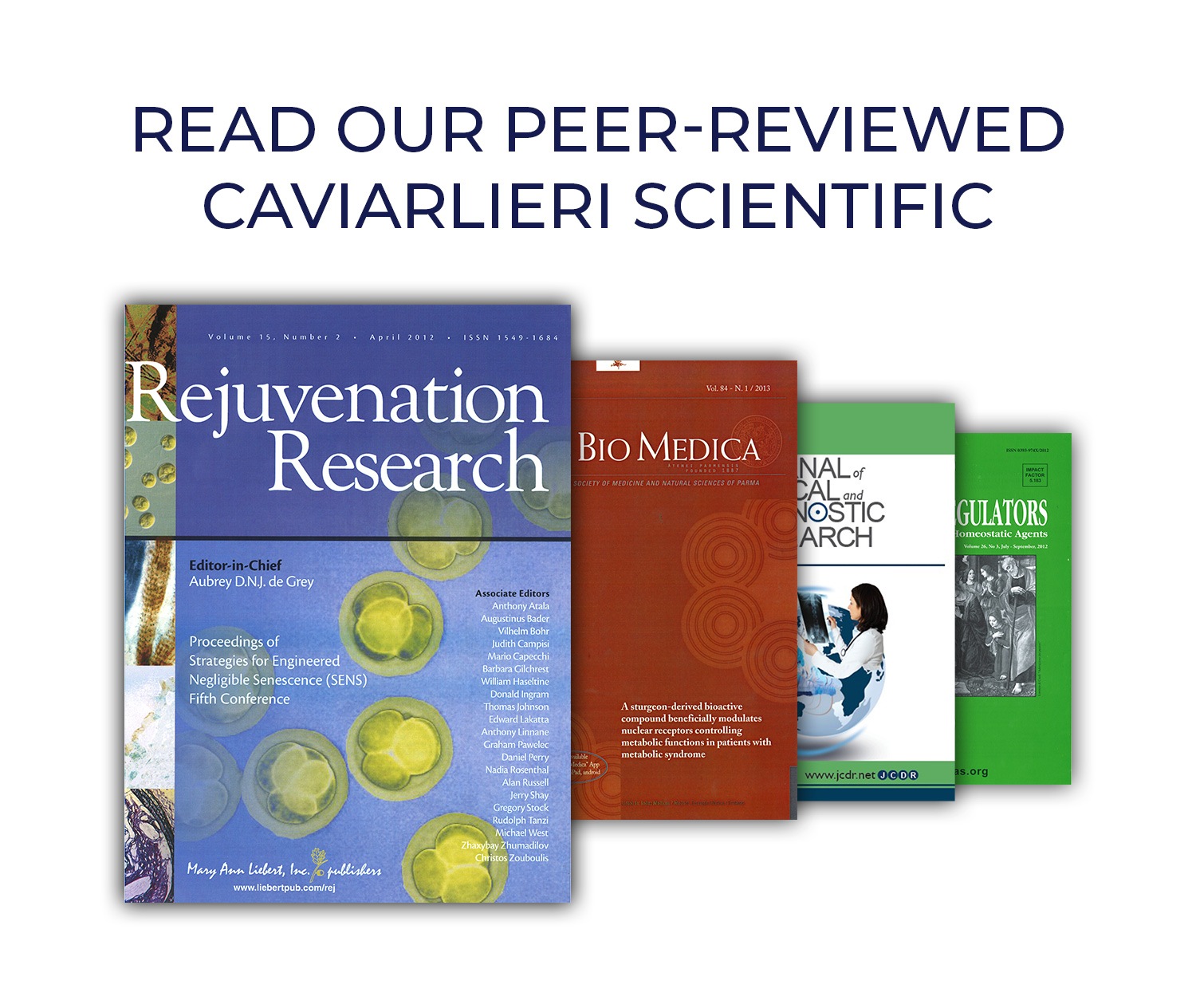How do you choose a Safe and Effective Supplement?
Caviarlieri | Published February 20, 2020
Many adults take one or more vitamins or other dietary supplements per day. In addition to vitamins, dietary supplements can contain minerals, herbs or other botanicals, amino acids, enzymes, and many other ingredients. Dietary supplements come in a variety of forms, including tablets, capsules, gummies, and powders, as well as drinks and energy bars. Popular supplements include vitamins D and B12; minerals like calcium and iron; herbs such as echinacea and garlic; and products like glucosamine, probiotics, and fish oils.
According to a new research, the dietary supplements market is anticipated to reach over USD 349.4 billion by 2026.
A significant increase in the obese population, stressful and demanding lifestyles, the desire for quality of life with increase in average life span and preventive initiatives to promote healthy lifestyles primarily drive the growth of this market. Other driving factors include increasing diseases associated with metabolic ailments, the rapid progression of degenerative diseases, increasing disposable income and more awareness regarding the importance of nutrition. The growth of inflammation-related diseases such as cardiovascular diseases, diabetes and hypertension along with sedentary lifestyles of consumers further propel the adoption of dietary supplements.
And yet the vitamins and supplements market remains largely unregulated in most parts of the world. This poses a great deal of concern as there is no strict regulatory and approval procedures. While the US Food and Drug Administration (FDA) is charged with overseeing dietary supplements, there is no safety testing or FDA approval required before a new supplement goes on the market.

In addition, there are no requirements that the dietary supplement packaging list its potential adverse effects, if any. The consumer therefore, has to exercise discernment and discretion when selecting a health supplement or a vitamin. There are potential risks especially if the indications on the product label may not be truthful or may be misleading. The lack of knowledge and understanding on the part of the consumers regarding dosages and ingredients can cause more harm to our body than good. Placebo-effect types of supplements can waste the consumer’s investment as there are zero benefits to them.
When it comes to product claims, most supplements lack scientific evidence or clinical studies to back their claims. Some of the studies are done in house and are not published in peer-reviewed journals. Another concern that is noteworthy is that some supplements and vitamins were found to have contaminants and heavy metals. Depending on where the product is manufactured, the quality standards will differ.
In spite of the potential risks of vitamins and supplements, there are many known and scientific evidenced based benefits of supplements which can help consumers enhance their overall well being and give them quality if life even as they age. Effective and safe supplements can also help mitigate the side effects of prescription drugs and prevent and delay the onset and progression of degenerative diseases.
How to Choose a Safe and Effective Supplement?
1. Quality of the Supplement
The US FDA has established good manufacturing practices (GMPs) that companies must follow to help ensure the identity, purity, strength, and composition of their dietary supplements. These GMPs can prevent adding the wrong ingredient (or too much or too little of the correct ingredient) and reduce the chance of contamination or improper packaging and labeling of a product. The FDA periodically inspects facilities that manufacture supplements. If the supplement is manufactured in a US FDA approved manufacturing facility, then you can be assured that the product has adhere to strict guidelines for quality and safety.
There are other certifications or accreditations you can identify like BRC or certification of approval from the health authorities in the country where the product is manufactured.

BRC is an international Food Safety Management Systems standard and is one of the GFSI recognized certification schemes.It contains requirements for food processors to follow to build an effective food safety management system. Over 16,000 facilities worldwide are certified to the BRC Global Standard for Food Safety.
2. Safety of the Supplement
If the food supplements are produced in Europe, the manufacturer has to ensure that all the ingredients used in the supplement are listed under the EFSA (European Food Safety Standards). The European Food Safety Authority (EFSA) is the agency of the European Union (EU) that provides independent scientific advice and communicates on existing and emerging risks associated with the food chain.
In addition, if the manufacturer is a trustworthy and reputable brand, especially manufacturers that produce world renowned drugs, their safety standards will be more stringent and the quality assured.
If you worry about the presence of heavy metals, you can send the supplement to any laboratory in your respective country and have the lab test for the presence of heavy metals before you consume the product.
3. Effectiveness of the Supplement
Check if the supplement has relevant scientific studies published in peer-reviewed journals as stated in the product claims. If the study is also featured in PubMed, the credibility is enhanced further. Available to the public online since 1996, PubMed was developed and is maintained by the National Center for Biotechnology Information (NCBI), at the U.S. National Library of Medicine (NLM), located at the National Institutes of Health (NIH).
Also review their web site and see if the products are available in doctors’ clinics or reputable medical centers or pharmacies globally and not just online.
4. Regulatory Approval of Respective Countries
Some countries in Asia, Australia, Canada etc. require regulatory approval prior to the importation and sale of the product. If the product has many approvals and registrations in most countries, it is deemed to be safer since it has gone through the regulatory process.
5. Others
- Be careful of your dosage especially for vitamins and herbal supplements
- Taking more than you need costs more and might also raise your risk of side effects. For example, too much vitamin A can cause headaches and liver damage, reduce bone strength, and cause birth defects. Excess iron causes nausea and vomiting and may damage the liver and other organs
- Buy with caution herbal supplements that claim they are natural
- Caution when taking vitamins – If taking a multivitamin, make sure the vitamin A is in the form of beta carotene, not retinol or retinyl compoundsIt’s important not to exceed the recommended levels of vitamin B6, as nerve damage could result
- Pregnant women should get at least 400 micrograms of folic acid (vitamin B-9) a day, either through a healthy diet or a supplement.
- While Vitamin D may help reduce osteoporosis, or weakening of the bones, there is no evidence it reduces the risk of cancer
- Taking vitamin E supplements to prevent cancer or cardiovascular disease is NOT recommended
Things to Keep in Mind
- When in doubt, consult your healthcare provider before taking dietary supplements to treat a health condition
- Keep in mind the term “natural” doesn’t always mean safe. Some all-natural botanical products, for example, like comfrey and kava, can harm the liver. A dietary supplement’s safety depends on many things, such as its chemical makeup, how it works in the body, how it is prepared, and the amount you take
- Before taking any dietary supplement, use the information sources listed in this brochure and talk to your healthcare providers to answer these questions:
- What are its potential benefits for me?
- Does this product have any safety risks?
- What is the proper dose to take?
Caviarlieri is a Swiss Caviar and Marine Food Supplement, created from many years of intense and extensive research. Developed by a distinguished group composed of Anti-Aging medical experts, gerontologists, biochemists and pharmaceutical professionals and Made Only in Switzerland, it is the 1st and Only Swiss Caviar Cell Therapy supplement in the world.

Caviarlieri is a food supplement approved by the Swiss Public Health Authority and it is available in leading Swiss Medical Centers and Spas as well as pharmacies throughout Switzerland. It is a potent supplement manufactured by in Switzerland.
In 2017, Cologne List® where Caviarlieri is also listed is the world’s biggest information database on safety of nutritional supplements with more than 950 products listed. The Cologne List® publishes products which have been tested for selected doping substances by one of the globally-leading laboratories in nutritional supplement analytics.
The efficacy and potency of Caviarlieri is due to its stringent and careful extraction of ingredients and manufacturing. This makes sure all ingredients reach the very goal of its production which is to be absorbed by our body for the desired outcome. Caviarlieri is manufactured using our proprietary Swiss Cold Process Extraction Technology, Cellularix. Caviarlieri comes in soft gel form which contains encapsulated bioactive nutrients and peptides for optimal absorption. It is important to remember that not everything we consume can be absorbed.
Caviarlieri is also backed by Science as it has several studies published in peer-reviewed journals and the benefit claims are therefore evidence based benefits like significant increase in energy levels, mood elevation, reduction in joint pain, enhancement of sleep quality, improving brain health, strong inflammatory properties and many others. By providing essential nutrition at the cellular level, Caviarlieri trigger protein synthesis and stimulates our own body healing system to repair and renew our cells versus damaged cells. Unlike drugs, it will take 3-6 months regime to provide maximum benefit and results. As Caviarlieri is a food supplement, the results will vary among individuals.
Scientific Studies of Caviarlieri are as follows:
- Rejuvenation Research Volume 15 Number 2, April 2012 (you can also visit the PubMed web site -US Library of Medicine, Institute of Health).
Title of the report: Beneficial Modulation from a High-Purity Caviar-Derived Homogenate on Chronological Skin Aging” - Journal of Biological Regulators and Homeostatic Agents ISSN – 0393-974X/2012
Title of the report: Effective Properties of a Sturgeon-Based Bioactive Compound on Stress-Induced Hippocampal Degeneration And On In Vitro Neurogenesis - Acta Bio Medica/ Official Journal of the Society of Medicine and Natural Sciences of Parma Vol 82 – N2/2012
Title of the report: Improving Sperm Quality and Spermatogenesis through a Bioactive Marine Compound : an experimental study - Journal of Biological Regulators and Homeostatic Agents ISSN – 0393-974X/2012
Title of the report: Beneficial Effect of a Sturgeon-Based Bioactive Compound on Gene Expression of Tumor Necrosis Factor-alpha Matrix Metalloproteinases And Type-10 Collagen in Human Chondrocytes - Acta Bio Medical / Official Journal of the Society of Medicine and Natural Sciences of Parma Vol 82 – N2/2012
Title of the report: A Sturgeon-derived Bioactive Compound beneficially modulates nuclear receptors controlling metabolic functions in patients with Metabolic Syndrome - Acta Bio Medical / Official Journal of the Society of Medicine and Natural Sciences of Parma Vol 84-N1/2013
- Journal of Clinical and Diagnostics Research V 8(11) November 2014
Title of the report: A Double- Blind, RCT Testing Beneficial Modulation of Bdnf in Middle-Aged, Life Style-Stressed Subjects : A Clue to Brain Protection
As Caviarlieri is Made in Switzerland, all the ingredients of Caviarlieri are approved by the European Food Safety Authority (EFSA).
In addition, for every batch of production, the products are sent for heavy metals testing, microbial testing etc.to ensure the safety of the products.
Putting in consideration all these factors, as a Caviar Food supplement, Caviarlieri is a valuable Swiss Cell Therapy supplement which helps to extend youth, vitality and beauty via cellular repair and renewal.
Learn more about what other experts have to say about Caviarlieri here “Experts’ Opinions on Caviarlieri“.
Subject
Recent Posts
-
The Amazing Benefits of Highly Polymerized Fish Collagen Peptides with Elastin – Caviarlieri
-
The World’s Most Effective Caviar DNA Extract with Marine Bioactive Peptides
-
Are Supplements effective for Joint Pain?
-
Why Is Sustainable Immunity Important for Your Long-Term Health
-
What is your “Body Age” – Biological Age?




